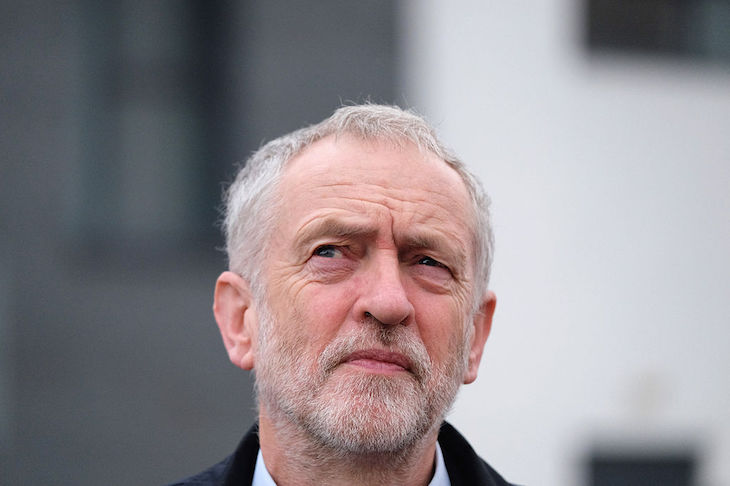Many assume that if an election were held soon, Jeremy Corbyn would win. But what if, say, the government fell in 2020 and Labour won a working majority?
At 71, Corbyn becomes Britain’s oldest prime minister since Churchill, and at first is one of its most popular. His appeal grows as he takes on some of the country’s favourite demons. Few listen to the protests of water and electricity shareholders as their stakes are seized — most are focused on their own bills, which surely will come down now. There are cheers at Victoria Station as the news flashes across screens that Southern Railway is to be nationalised. At hospitals, medical staff are filmed applauding as PFI contracts are terminated and taken on by the NHS. Stock markets show an upwards blip. They have, after all, already priced-in the expected Corbyn victory, while the clear result means that the endless political horse-trading of the past few years is over. Sterling bounds upwards — for a few days. A Corbyn victory seems to indicate that Britain will finally leave the EU, rather than the half-in, half-out arrangement which has persisted as Downing Street tried to placate warring Conservative factions. It means that Britain should gain distance from the troubled eurozone, still reeling from its most recent crisis. But then social media starts to light up with snaps of sheepish-looking celebrities — a number of whom have previously given warm support to Corbyn — boarding planes to the US, Canada or Australia. A week later the national mood remains positive, in spite of grumblings when a Commons bill forces coffee-shop chains with more than 500 UK outlets to buy their beans exclusively from fair-trade growers in Venezuela, which is to get £100 million in UK aid to help diversify its economy. Starbucks closes some shops and says it will put no more investment into the UK to avoid the inflated prices. But it isn’t until week three, when Chancellor John McDonnell delivers his emergency budget, that the honeymoon ends. People who earn more than £80,000 a year have braced themselves for higher taxes; not so the middle managers with pension funds valued at more than £250,000, which will now be subject to a new ‘wealth tax’ of 1 per cent per year. There is fury that public sector pensions will be exempt. There is also a new social care levy of 2 per cent on the value of any home worth £500,000-plus. Critics start likening it to Theresa May’s ‘dementia tax’. In the melee, a rise in corporation tax to 50 per cent for company profits over £10 million goes almost unnoticed. The extra revenue is all needed, says McDonnell, to ‘invest’ in an extra £100 billion of public spending a year, including abolition of tuition fees and the government’s ambitious nationalisation programme. The Conservatives’ plan to move the budget back into surplus (currently pencilled in for the year 2026-27) is abandoned. There are still willing investors for the next auction of government debt a week later, but they have started to demand higher interest rates. The pound starts to slide. It is just a slight adjustment, maintains McDonnell — until he is back to deliver his second emergency budget six weeks later. Corporate tax receipts, it turns out, have nosedived due to company relocations. The wealth tax is doubled to 2 per cent and will now apply to all personal assets worth over £100,000. Interest rates continue to rise as investors begin to worry whether the UK will be able to honour its future debts. Could the nationalisation programme be halted? There is some hope when the European Court of Justice rules that parts of it could be illegal under competition law. With Britain’s exit from the EU finally scheduled for 12 August, marking the Corbyn government’s 100th day in office, Boris Johnson, frontrunner for the Tory leadership, makes a passionate speech demanding that withdrawal be delayed at least until the question of nationalisation can be resolved. Charges of hypocrisy abound — none, though, more ironic than those levelled by Russell Brand, the star of Corbyn’s election broadcasts, speaking from the side of his LA swimming pool.







Comments